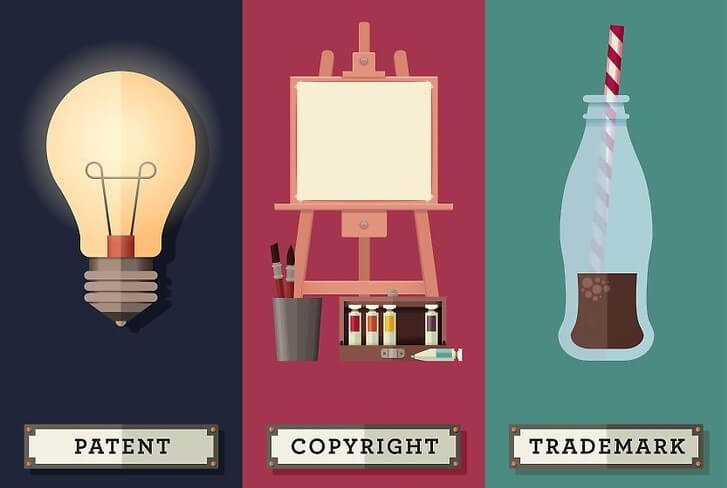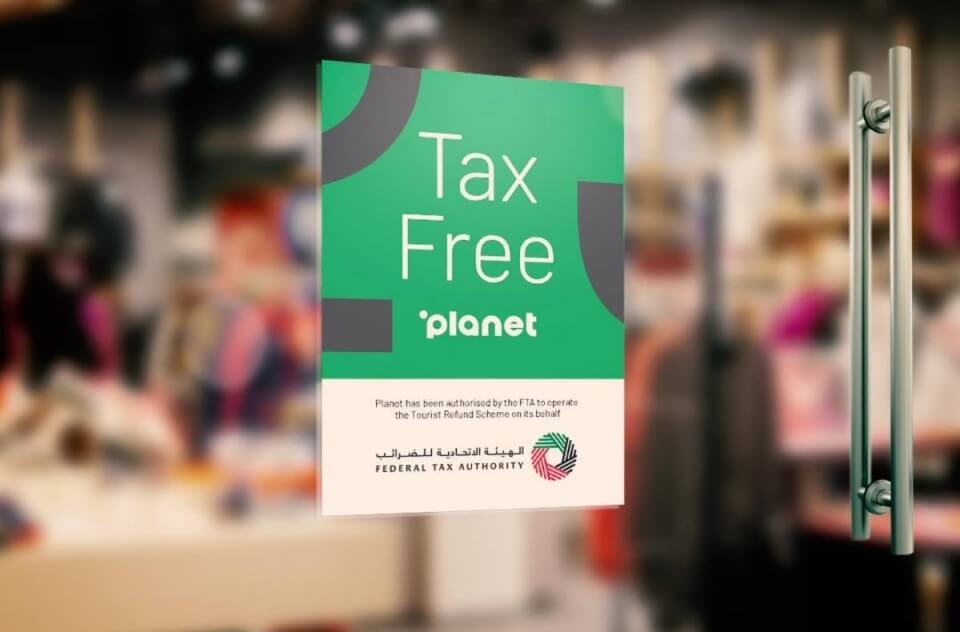المدونة القانونية
Influencer Licensing & VAT in the UAE

Tim Elliot: Welcome to Lawgical, the UAE’s first legal podcast. Lawgical comes to you from the Dubai-based law firm, HPL Yamalova & Plewka. I'm Tim Elliot. We’re socially distanced on the 18th floor at Dubai’s JLT, Jumeirah Lakes Towers District at the firm’s offices, and here is the Managing Partner, Ludmila Yamalova. Great to see you.
Ludmila Yamalova: Happy to see you too, Tim, as always.
Tim Elliot: Now, in this edition of Lawgical, we have an update on influencer’s licenses, social media influencers and value-added tax in particular. Now Ludmila, to kick things off, I’d like to consider a part of the background first. Let me just set the scene, the National Media Council, the NMC, issued a resolution regarding electronic media in the Emirates back in 2018. Now this resolution was issued after Resolution Number 30 of 2017 on media activities and licensing to specifically include social media and govern, among other things, social media influencers. Can we just start with what those regulations meant and what they actually covered?
Ludmila Yamalova: Yes. First, I want to just highlight the authority that governs this particular activity of social medial and other types of media, and that is the NMC, as you rightfully said the National Medial Council. This is a federal authority in the UAE that has overarching authority over any kind of electronic media or the traditional type of media activities in the UAE In light of the increase in popularity perhaps of social media in the last few years, the NMC has now taken up the challenge of specifically regulating media activities and specifically includes social media into those activities because let’s face it, social media historically or traditionally was not part of the traditional media activities.
So, on the back of that, the NMC issued a resolution which specifically includes social media and, in short, states that any kind of social media activities and in particular those conducted by social media influencers for paid commercial purposes are now subject to their authority and the regulations in particular. So, as of now, it’s been specifically provided that any social media influencers that conduct activities for paid commercial purposes are now covered by the resolution. So, that’s the definition.
The resolution (1) sets on the definition of who falls under its authority and jurisdiction, and (2) what that means for those who do fall under the authority of the NMC and this particular resolution. What does that mean for those social media influencers in particular? In short, it means that (a) they need to get a license from NMC and then (b) as part of that, they obviously need to submit all sorts of documents in order to qualify for a license, and then (c), and we can discuss this a little further into this podcast, make sure that they comply with all the other laws in the UAE, including VAT or value-added taxes.
Tim Elliot: We’ll come to VAT in a moment. I just want to be absolutely clear. Those people who should be applying for a license, those who work on websites or social accounts, Instagram, Twitter... etc., specialized in accepting electronic online advertising, and that’s really one of the points, isn’t it? Those who engage in an activity of what’s become known as a social media influencer.
Ludmila Yamalova: Right. And there is another important aspect of this. What is a commercial activity? Because I know for a fact that a lot of social media influencers perhaps do not consider themselves as conducting commercial activities, or for example, they are not getting paid in actual money form, therefore, they may think that they do not qualify or they are not subject to this resolution. So, the resolution makes it very clear that commercial activity is any kind of exchange of some sort of value for services.
For example, as a social media influencer, you are advertising a service or a product on your website and you get some kind of value in exchange, and the value can come in different forms. It doesn’t necessarily have to be a paycheck. It doesn’t have to be cash. It could be, for example, the services themselves, and services obviously have a value, or goods themselves. Let’s say you’re advertising a hairbrush, or a shampoo, or a car, or a watch, what have you, and you receive that particular product in exchange. That, in and of itself, is clearly under the regulation falling under the jurisdiction of NMC and this particular resolution which means (a) it is a commercial activity, and (b) that kind of value is considered to be actually a paid service.
Tim Elliot: Understood. So, how do you qualify for a license? What are the fees for social media influencer licenses?
Ludmila Yamalova: In terms of qualifications, there is a whole list of so-called requirements and perhaps there is some leeway in terms of which one of these requirements are considered more stringently than others. But one thing that is important, for example, is having legal capacity and having a good reputation or decent conduct. That is one that is obviously very subjective. How do you show to NMC, the authority, that you have a good reputation or good conduct? What if you are just starting out? But that is perhaps one that is a little more subjective. Otherwise, there must not be any criminal record. That is one of the requirements. You have to have some academic qualifications, again, to what extent?
NMC actually monitors this particular element on the list of requirements and is somewhat subjective and more fluid, but there is definitely on the list at least a requirement of an academic qualification. Also, you have to pay the fees obviously and submit all your other documents related to your identity, such as passport copies, and if you are a resident here an Emirates ID, and all other documents that relate to your residency and residence in the UAE, such as your address and phone number. So, it’s a fairly extensive list.
But what is important is that not everybody can qualify for this NMC license. That is, if you are 18 years old, you cannot apply for your license, and let’s face it, social media is a thing for a much younger generation, so there are a lot more influencers out there who are not actually the age of majority in the UAE which, by the way, in the UAE is 21, though NMC does have a different number listed in its requirements and that is 25. It’s important to highlight that as per NMC’s own list, a lot of social media influencers may not qualify to receive a license right now purely because of their age.
With regard to the licensing fees, it is 15,000 dirhams per year to apply and then every year you also have to pay another renewal fee which is the same amount, 15,000 dirhams. You can get a three-year license and then you pay just the triple of that, which is 45,000 dirhams. I do want to highlight one more thing. This NMC license is basically just a license to allow social media influencers to conduct social media type activities. It’s not the same as a commercial license that would otherwise be licensed by one of the economic zones in the UAE.
For example, a free zone license or a DED license, DED being the Dubai Department of Economic Development. These are the licensing authorities for all other types of businesses. A lot of activities actually may require both types of licenses. If you’re just an individual, for example, who is very popular and have a pretty large following on let’s say TikTok or Instagram and all you are doing is advertising services as part of your social media presence and you don’t really have an office, employees, and some sort of business, an NMC license alone may suffice.
But if you want to have a bank account now, for example, you need to hire employees, or you want to have an office, then in addition to the NMC license, you will also be required to have a commercial license, and for that commercial license, you would have to apply to one of the other licensing authorities.
Tim Elliot: Just for the record, 15,000 dirhams is approximately $4,000 U.S. dollars, isn’t it?
Ludmila Yamalova: Correct.
Tim Elliot: Okay. The big news, the big change happens this month. It was March 7th actually, and you’ve mentioned those three letters, VAT, and essentially it meant that content creators, social media influencers, are subject to the country’s VAT law. Now, earnings include the value of free gifts and experiences received in return for their services, but also, and this is really important to point out, I think, services that are subject to the tax include any paid promotional work such as promoting a product or company, the things that social media influencers often do, and it also means that physical appearances, something else that social media influencers do, and access to their networks on social media are also taxable, and that’s a huge change.
Ludmila Yamalova: It’s interesting. It is huge, but I will perhaps add a bit of a qualifier. It’s not really a chance.
Tim Elliot: A development.
Ludmila Yamalova: It’s perhaps education or highlighting an existing law. What this refers to is when the UAE introduced the value-added tax law which was, I think, 2018 now, a few years ago. In short, VAT applies to all commercial activities that have a revenue of more than about $100,000, so 375,000 dirhams approximately, and that is the overarching requirement for although businesses to be subject to the UAE VAT law, and that’s as broad as perhaps the preamble to the law is. That does not, in any way, exclude social media influencers.
Because social media and in particular social media influencers have evolved quite rapidly over the last few years, perhaps in the beginning many social media, and let’s face it, a lot of people who go onto social media don’t know that they will become something of a phenomenon, and so it kind of evolves over time. Because of that, a lot of the social media influencers, in particular, did not take note of the VAT law, and they did not think that they would be subject to it because ultimately perhaps they underestimated their own success.
Because remember, there are two things that are at play to be subject to the VAT. One is (1) commercial activity, you have to be some sort of a business, and (2) is that your commercial activity, your revenue stream, has to be more than $100,000 or 375,000 dirhams a year. So, what happened this year in March, just earlier this month, March 2021, the Federal Tax Authority, or FTA, highlighted or announced specifically that influencers are subject to VAT, but it is more of a reminder to please go back and read the laws versus, hey, as of now, influencers will be covered by FTA and VAT laws.
So, it’s just a reminder that (1) any kind of commercial activity out there that has that kind of revenue stream of more than 375,000 dirhams a year is required then to be subject to VAT. Then (2) in fact, and even on the back of that, you do not need to amend the VAT law as it exists today in terms of defining the value of your revenue stream or how it is calculated. The VAT law, from the very beginning, has been very specific that in terms of monetary value it includes any kind of in-kind consideration, so it doesn’t have to just be monetary.
It can be services. It can be discounts even. It can be promotions and offsets. So, from the very beginning, the law included all of that. It’s just perhaps there wasn’t a specific phrase of social media included in the law itself, but all the laws and all caveats are already in there. So, therefore, the FTA earlier this month announced and highlight and reminded social media influencers that anybody who was conducting commercial activities and receiving money in exchange.
And money can be any kind of value and consideration such as services or any kind of in-kind goods, and as you said, physical appearances and anything else that you receive in consideration in exchange for your services or promoting a company, or a brand, or a person, or a product on your social media profile, that is considered to be commercial and the value of those services has to be quantified.
If it is $100,000 or more per year, then you are subject to pay VAT, which by the way is quite important because that means that all of a sudden now social media influencers have to actually issue invoices, and these invoices have to be a specific format. The format is actually quite detailed, and it’s important because the FTA and the VAT laws themselves are very, very specific in terms of what has to go into that invoice to qualify as a VAT invoice.
Therefore, this is one perhaps change, as you said. It is not a change in law, but more a change in awareness and practice that social media, for instance, will now have to take note and incorporate as their day-to-day business practices, and in particular the documentation that they will create in exchange for providing their services. It is no longer, here is my account number, send it to me. You’ll have to issue an invoice and receipts as well.
Tim Elliot: There is another point to make here, isn’t there? This is one way, I guess, one of the side benefits, if you like, is that this professionalizes the industry to some extent because social media influencing has long been kind of an ad hoc sideline that has turned into a professional for lots of people, but the Federal Tax Authority, the FTA, making this announcement and influencers having to issue invoices is going to streamline and hopefully professionalize the industry that is here for the long term.
Ludmila Yamalova: For sure. To add to that, many more licensing authorities now actually have a very specialized activity now, social media, a social media license. So absolutely the world is embracing the new world order, and social media is now, as you rightfully said, becoming one of the other commercial or business types of industries.
Tim Elliot: That’s it for this episode of Lawgical. This time, licenses for social media influencers and content creators as well, and value-added tax here in the UAE. As ever, our legal expert here on Lawgical was Ludmila Yamalova, the Managing Partner here at Yamalova & Plewka. Thank you for your legal expertise.
Ludmila Yamalova: Thank you to you, Tim.
Tim Elliot: If you have a legal question you’d like answered in a future episode of Lawgical, or if you’d like a consultation with a qualified UAE experienced legal professional, just contact LYLawyers.
Written by:
Ludmila Yamalova | HPL Yamalova & Plewka DMCC
لا توجد حاليًا معلومات لعرضها في هذا القسم.

هذا المنشور لعرض المعلومات العامة فقط، ولا يهدف لتقديم استشارة قانونية شاملة أو أي نوع آخر من الاستشارات.
لا تتحمل شركة ليجال أدفايس ميدل إيست والمساهمون مسؤولية أي خسائر قد تنجم عن الاعتماد على المعلومات المذكورة في هذا المنشور. هذا المنشور يهدف فقط إلى الإشارة إلى المسائل القانونية التي تحتاج إلى طلب الاستشارة بشأنها.
لا بد من الحصول على استشارة قانونية شاملة في الوقت المناسب من خلال محامٍ كفء عند التعامل مع مواقف معينة.




